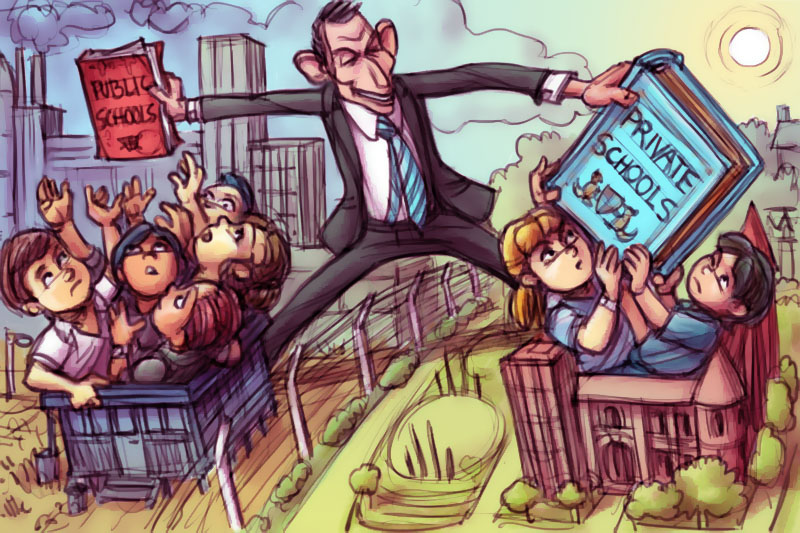Quotes
The readings on Finn and Oakes were very much related in talking about the social class system and the access to proper education no matter what ones socio-economic status is. Finn talks more about how today our social class structure has lead to the conditioning of people falling into the same routine in terms of getting an education saying that the poorer people aren't becoming literate because the School system is teaching basic and essential skills to survive while the richer students are learning skills and tools that is going to put them over the top. Oakes talks about how schools need to merge the education gap that is present between students who are able to understand material well and others who are not because we as a society are just making the powerful (rich) more powerful and the disadvantaged (poor) more disadvantaged.
"We all participate in this social system as if it were natural, the way things were meant to be."
Here Finn is saying that we as a society are falling into the social norms that are present everyday. We have become so accustomed to the social class system in which the people who have an opportunity will be able to grow while others who don't will not gain anything from their experiences or education. Understanding the mechanics that contribute to these norms Finn believes that we can change the place in which we live in and the rich and poor will both get empowering education and powerful literacy. This belief shows that in order to change the world and for people of higher class status to not have the ideology that the poor is dragging society down we need to develop a structured system in which everyone buys into.
"When rich children get empowering education nothing changes. But when working class children get empowering education you get literacy with an attitude."
Empowering education for rich children provides no growth because of possibly many factors. The two majors ones being that one they are not too worried about striving for success because they are set for life, or two they have already been granted access to a higher education on many levels and there isn't much room for growth in their desired field of study. Meanwhile children in the working class who are granted empowering education absorb it fast because its something they have never seen before or had an opportunity to "play" with. Literacy with an attitude as Finn describes it is the literacy that lower class people are exposed to and learn so much about because they never once had the opportunity. It is instilled in these peoples minds that if they gain the knowledge of the higher social class people they will begin to recognize the injustice they have suffered in society.
(Oakes) "Students who are placed in high-ability groups have access to far richer schooling experiences than other students."
This quote by Oakes is very relevant to the theme of the text and the connection to Finn. Students who have access to empowering education because they understand the schooling content in class are being separated from students who don't not understand. This creates for stressful environment in which we are separating students almost as if it were a racial, cultural, and political reasons that leads to this. This is strictly a social class reasoning in which we are developing and growing the students who understand by offering them a richer and deeper learning experience in schools possibly by means of technology and other "reward" based systems. The other students who are separated and don't quite understand are stuck in the cycle with others who are stuck which inhibits growth and lack of opportunity by lack of recognition of teachers, and other leaders around them.
Connection to another text: These readings reminded me of kristof and Kozol more often than not because where you start in society on the high end or low end is a good prediction of where one ends up and the opportunities available to that person. Also Kozol plays a role here because the separation of people in society produces these mixed visions of other people (Christensen) and there is a lack of opportunity for growth to people who are disadvantaged.
Points to Share/Discuss: The education gap is certainly still present, as I am currently seeing it in my service learning. The difficulty in creating a system that induces everyone to learn rich or poor is a challenging goal, but what are some things that are essential that must go into this system?


